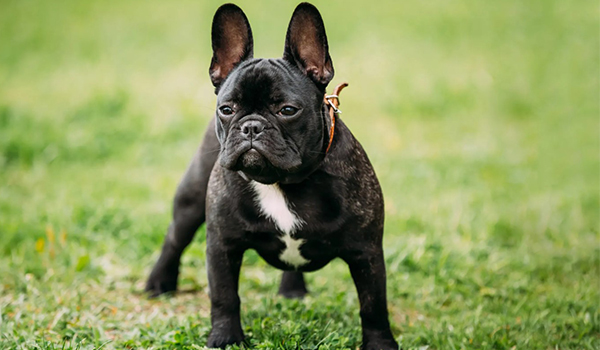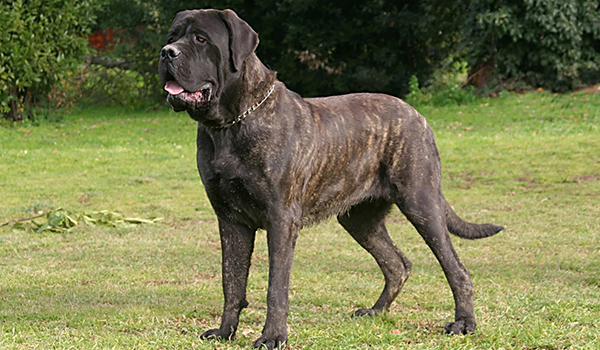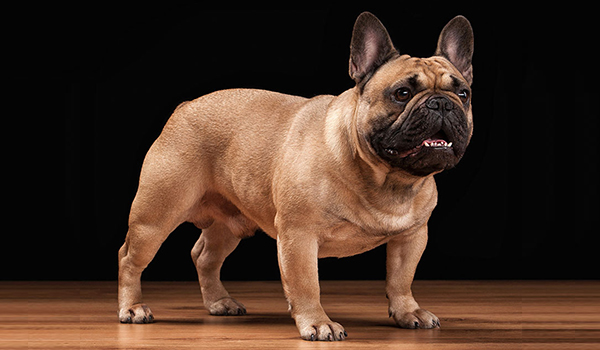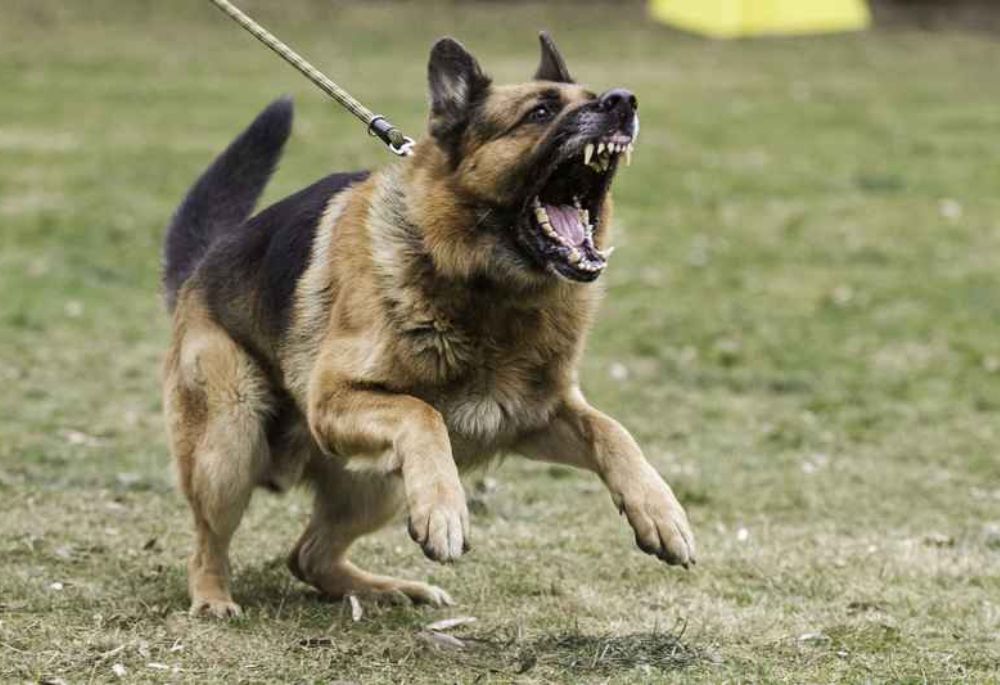
Discussing “dangerous” dog breeds is a highly controversial and often misleading topic. A dog’s behavior is far less about its breed and more about its individual genetics, training, socialization, and, most importantly, ownership. However, certain powerful breeds possess strong protective instincts, high energy drives, and physical strength that require exceptionally responsible handling.
Irresponsible ownership of these breeds can lead to more severe consequences due to their potential for harm. This article outlines five powerful breeds that demand experienced owners and highlights the unique legal landscape surrounding them in the United States.
Important Context First: It’s About the Owner
Labeling a breed as “dangerous” is a misconception. The American Veterinary Medical Association (AVMA) states that “breed is a poor sole predictor of aggression.” Factors like improper socialization, neglect, abuse, and a lack of training are significantly greater contributors to aggressive behavior.
The breeds listed below are often subject to Breed-Specific Legislation (BSL). These are laws that restrict or ban certain breeds outright. We will explore this complex issue below.
1. Pit Bull Terrier (Umbrella Term: American Pit Bull Terrier, American Staffordshire Terrier, Staffordshire Bull Terrier)
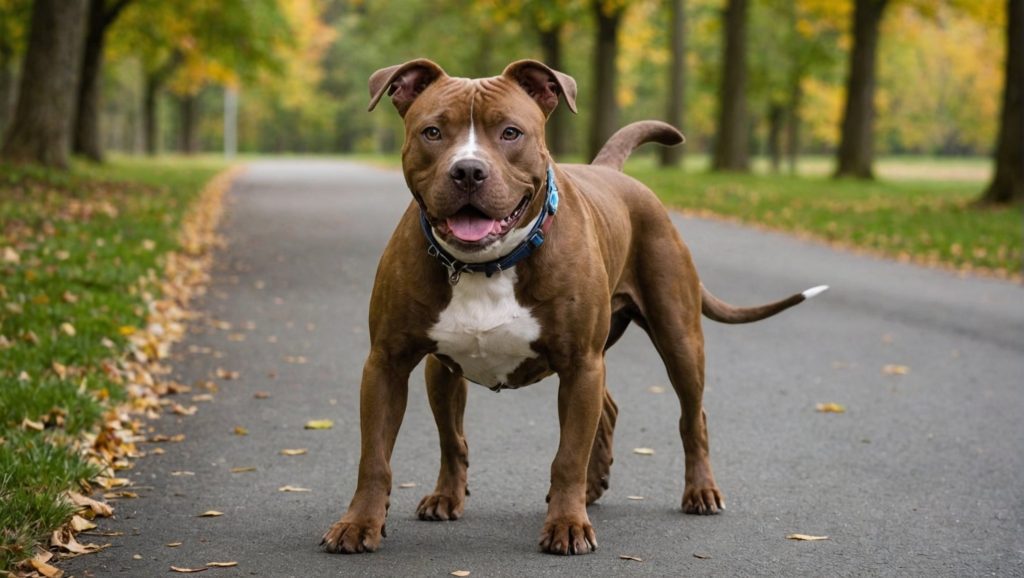
Why They Are Considered Powerful: “Pit Bull” is not a single breed but an umbrella term for muscular, terrier-type dogs. Historically bred for bull-baiting and later, unfortunately, for dogfighting, they possess immense jaw strength, high pain tolerance, and tenacity. In irresponsible hands, these traits can be misdirected.
Ownership Requirements:
- Non-Negotiable Socialization: Early, continuous, and positive exposure to people, other animals, and environments is critical to prevent fear-based aggression.
- Strong Leadership: They require a confident, consistent owner who uses positive reinforcement training. They are incredibly people-oriented and eager to please but can be stubborn.
- Secure Containment: A secure, tall fence with no escape routes is mandatory. They are athletic and powerful jumpers/climbers.
- Mental & Physical Stimulation: They have high energy needs. Without an outlet, they can become destructive.
2. Rottweiler
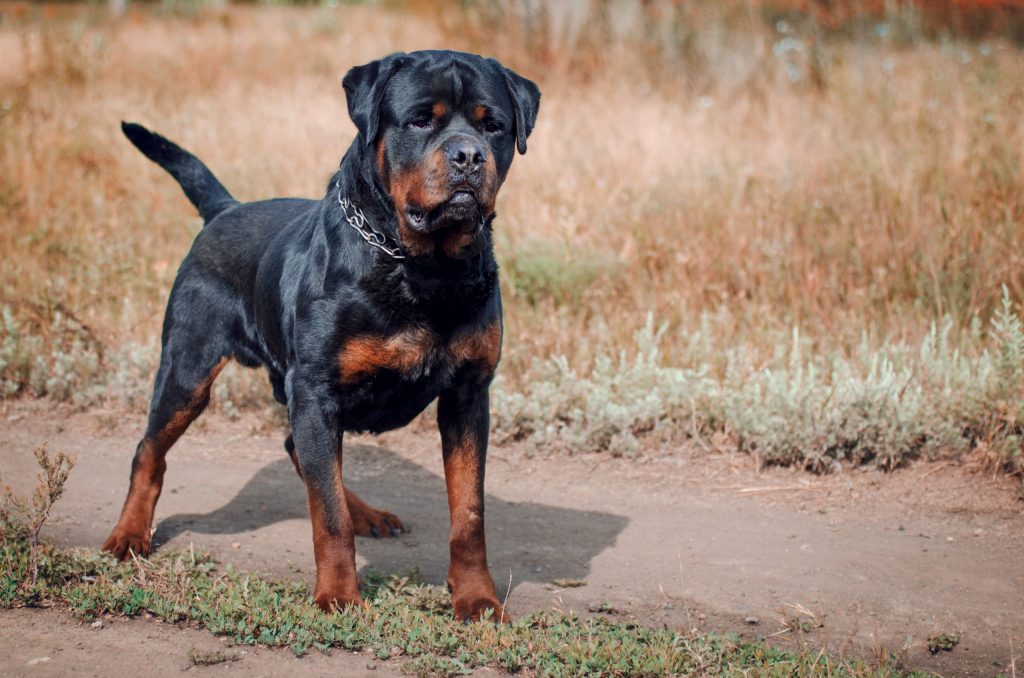
Why They Are Considered Powerful: Bred as drover dogs and guardians, Rottweilers are naturally protective, confident, and fearless. They are powerfully built and have a strong instinct to guard their home and family.
Ownership Requirements:
- Experienced Owner: Not a breed for first-time dog owners. They require an owner who understands canine psychology and can establish calm, assertive leadership without force.
- Extensive Socialization: Crucial from a very young age to ensure their protectiveness doesn’t turn into suspicion or aggression toward strangers.
- Ongoing Training: They need a job and consistent obedience training throughout their lives to channel their intelligence and strength positively.
- Secure Environment: A strong fence is a must. Due to their guarding nature, they should not be left unattended in a yard.
3. German Shepherd Dog
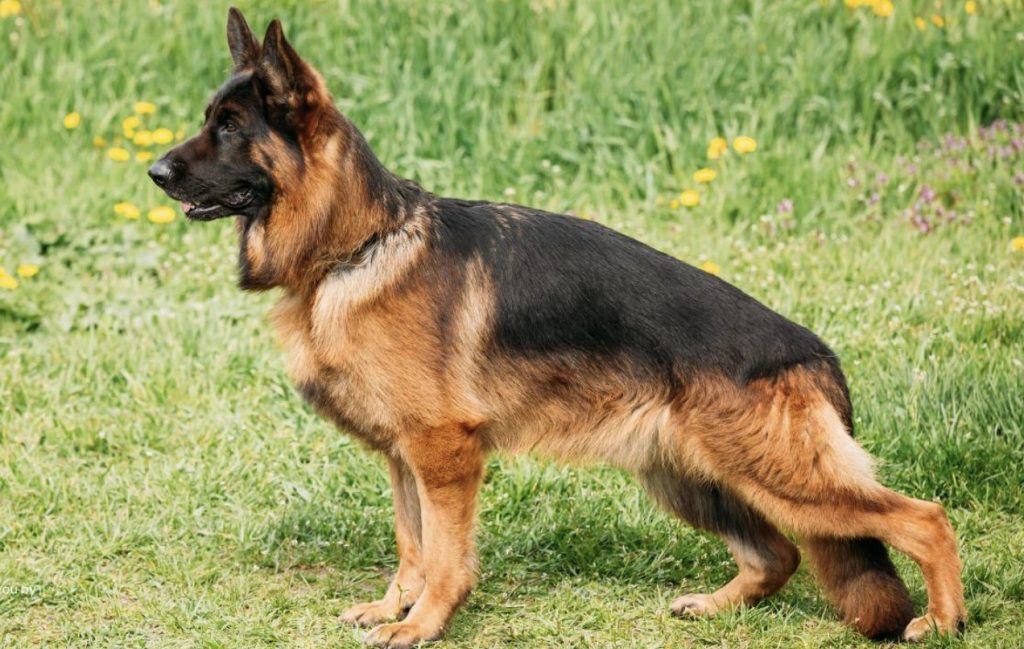
Why They Are Considered Powerful: Bred for herding and protection, German Shepherds are among the most intelligent and versatile breeds. Their strength, loyalty, and strong work ethic make them top choices for police and military work. This same drive requires expert channeling.
Ownership Requirements:
- Active Job & Lifestyle: They must have a purpose—whether it’s advanced obedience, agility, protection sports (with a professional), or a demanding job. A bored German Shepherd is a recipe for disaster.
- Structured Socialization: They can be aloof with strangers and are naturally protective. Proper socialization prevents over-protectiveness and anxiety.
- Firm, Consistent Training: They thrive on clear instructions and boundaries. They need an owner who is a firm but fair leader.
- Attention to Health: Prone to hip dysplasia and anxiety, which can influence behavior. Responsible breeding and vet care are essential.
4. Doberman Pinscher
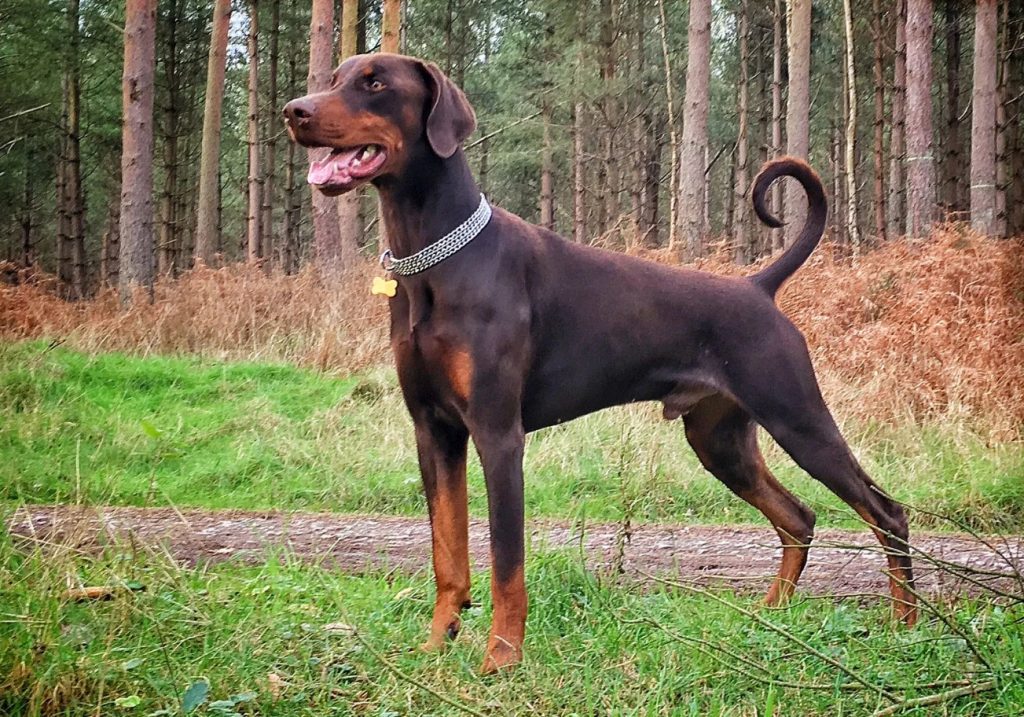
Why They Are Considered Powerful: Bred specifically for personal protection, the Doberman is sleek, fast, intelligent, and fiercely loyal. They have a reputation for being sharp and are always alert to their surroundings.
Ownership Requirements:
- Integrated Family Member: Dobies are velcro dogs that need to be with their people. Isolating them in a yard leads to severe anxiety and aggression.
- Extensive Socialization: To prevent them from becoming overly suspicious or reactive, they must be exposed to a wide variety of people and situations positively and continuously.
- Mental Stimulation: Their intelligence means they need puzzle toys, training games, and tasks to prevent boredom.
- Warmth: Their short coat and low body fat make them susceptible to cold weather.
5. Chow Chow
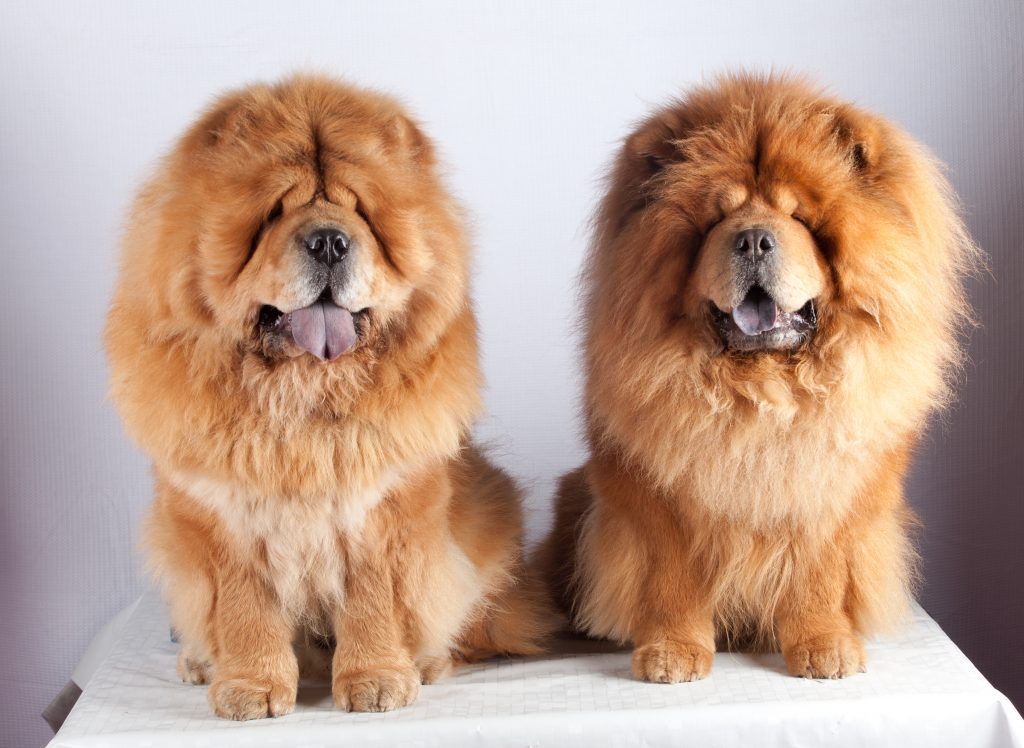
Why They Are Considered Powerful: Often surprising on this list, the Chow Chow is an ancient breed known for its cat-like aloofness and unwavering loyalty to a single owner. They are physically strong, possess a unique scissor-jaw bite, and are notoriously stubborn and independent. They are more prone to aggression if not properly socialized than many other breeds.
Ownership Requirements:
- Experienced, Dog-Savvy Owner: Their independent and stubborn nature makes them a poor choice for novice owners.
- Early & Intensive Socialization: This is absolutely critical for a Chow Chow. Without it, they can become fiercely protective and aggressive toward strangers and other animals.
- Respect Their Nature: They are not typically outgoing, affectionate with strangers, or eager to please. Owners must respect their independence while still setting firm boundaries.
- Grooming Needs: Their thick double coat requires significant daily brushing to prevent mats.
U.S. Legislation: Understanding Breed-Specific Legislation (BSL)
In the United States, there are no federal laws banning or restricting specific dog breeds. However, the regulation of dogs is primarily a state and local issue.
- What is BSL? Breed-Specific Legislation refers to laws that either ban or restrict the ownership of certain breeds deemed “dangerous,” most commonly targeting “Pit Bull-type” dogs, Rottweilers, and sometimes others on this list.
- What Restrictions Entail: Restrictions can include mandatory muzzling in public, requiring special licensing, enforcing higher liability insurance premiums ($100,000+ is common), and mandating specific enclosure standards (e.g., locked kennels, height requirements for fences). In some cities and military housing, outright bans are enforced.
- The Trend is Against BSL: The AVMA, the CDC, and other animal experts oppose BSL, citing it as ineffective. Research shows that laws targeting irresponsible owners (e.g., “dangerous dog” laws based on a dog’s behavior regardless of breed) are more effective and equitable. Many states (over 20) have now passed laws prohibiting cities and counties from enacting BSL.
- What This Means for You: You MUST check your local city and county ordinances. Before considering one of these breeds, research your local laws thoroughly. You could be forced to move or surrender your pet if you are in violation.
The Bottom Line
Owning a powerful dog breed is a significant responsibility that should not be taken lightly. These dogs are not inherently “bad,” but they are a magnet for irresponsible owners, which leads to tragic outcomes. The focus should always be on responsible ownership, proper training, and extensive socialization—regardless of breed.
Before getting any dog, but especially a powerful breed, ask yourself:
- Do I have the experience and time to train and socialize this dog properly?
- Can I provide the high level of exercise and mental stimulation it needs?
- Can I afford potential liability insurance and secure containment?
- Are these breeds legal where I live?
Choosing the right dog for your lifestyle and being a responsible owner is the most effective way to ensure safety and harmony for everyone—your family, your community, and your dog.

